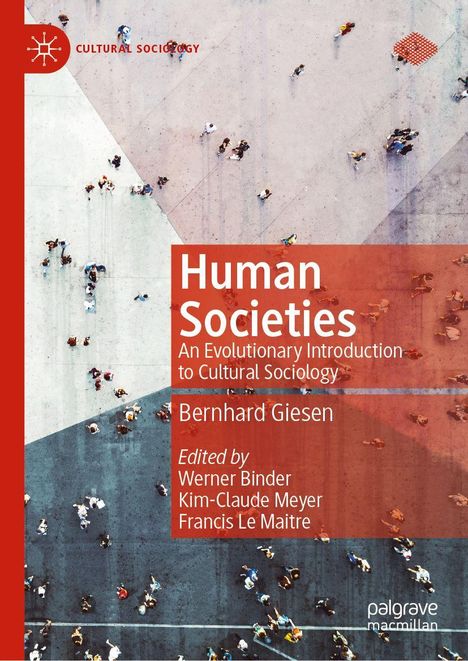Bernhard Giesen: Human Societies, Gebunden
Human Societies
- An Evolutionary Introduction to Cultural Sociology
(soweit verfügbar beim Lieferanten)
- Verlag:
- Springer International Publishing, 01/2026
- Einband:
- Gebunden
- Sprache:
- Englisch
- ISBN-13:
- 9783032076960
- Artikelnummer:
- 12439317
- Umfang:
- 240 Seiten
- Gewicht:
- 426 g
- Maße:
- 216 x 153 mm
- Stärke:
- 18 mm
- Erscheinungstermin:
- 3.1.2026
- Hinweis
-
Achtung: Artikel ist nicht in deutscher Sprache!
Klappentext
What if humanity's past isn't really past? Bernhard Giesen, during his lifetime one of the most prominent voices of German cultural sociology, believed that social and cultural forms that originated in earlier societies have not simply vanished but continue to shape our lives in often surprising ways. Consequently, he conducted his yearly introduction to cultural sociology as a tour de force through the history of humanity. This book contains a previously unpublished script, prepared by Giesen for a series of lectures at Yale University, offering the first comprehensive account of his unique perspective on human history. Giesen examines six types of societies, each characterized by its unique modes of production, classification, circulation, and representation, showcasing their enduring legacy with contemporary examples. Whether you are a student looking for an engaging introduction, a teacher looking for inspiration, or an expert eager to engage with new ideas, Human Societies offers an accessible yet intellectually profound work.
Biografie (Bernhard Giesen)
Bernhard Giesen ist Lehrstuhlinhaber für Makrosoziologie.

